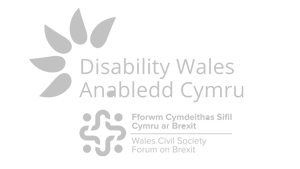A few words from our expert
-
AUTHOR: admin
-
October 4, 2020

A few words from our expert
Charles Whitmore, Research Associate and coordinator of the Wales Civil Society Forum on Brexit, Wales Governance Centre, School of Law and Politics, Cardiff University.
“Keeping up with, understanding and having a voice in the Brexit process has been very difficult for civil society and communities generally. However, it has been especially challenging for disabled people and their organisations, who despite being some of the most exposed to risks, have often been treated as an afterthought in the political process. Little to no effort has been made by the UK Government to engage disabled people’s organisations on Brexit or to ensure that key and often time-sensitive information is accessible and understandable for everyone. This lack of information has clear wellbeing implications and has fed into anxiety around for example, continuity of medical supplies, around whether travel to the EU will be affordable in the future or whether people in the UK will benefit from future improvements to rights at the EU level.
It is not surprising that disabled people are concerned about Brexit as the EU has provided a platform that has helped in their long fight for their rights – be it through implementation of the United Nations Convention on the Rights of Disabled People, through EU funding and case law, or by removing obstacles to international travel with accessibility improvements and the European Health Insurance Card.
It has been a pleasure for the Wales Governance Centre and WCVA to work in partnership with Disability Wales to try and fill some of these gaps by providing a space for disabled people to discuss these issues, voice their concerns and to hear directly from people working on Brexit. We are lucky in Wales that the Welsh Government has supported this work and we hope that the materials will help generate further discussion and empower disabled people to shape change on the other side of Brexit.”
